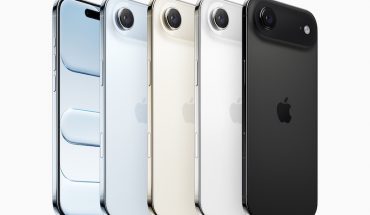 Cell phone contracts have drawn the ire of many Canadians over the years, who cite them as unfair and restrictive, but they have become a convenient way for consumers to get their hands on the best handsets on the market. While it might seem cost prohibitive to buy a phone outright, it’s a far more economical option than signing up for two years.
Cell phone contracts have drawn the ire of many Canadians over the years, who cite them as unfair and restrictive, but they have become a convenient way for consumers to get their hands on the best handsets on the market. While it might seem cost prohibitive to buy a phone outright, it’s a far more economical option than signing up for two years.
Now that three-year contracts are a thing of the past, two-year deals seem more attractive. Why not go for a Samsung Galaxy S4 for $180 on a two-year contract? Even a 32GB iPhone 5s at $330 might seem like the only way to go. But it’s not, and if you have the resources at your disposal, you shouldn’t.
Paying $500 or more for a smartphone is a tough pill to swallow for most, and if your budget doesn’t allow it, it’s certainly understandable. Smaller players like Wind and Mobilicity initially offered “tab” payment options where you could pay down the principal cost of the device at your own pace to eventually own it. It’s a lot like a mortgage or financing a car. The Big 3 carriers have followed suit, offering their own respective tab systems as an easier way to pay off the balance of the phone.
This was a welcome change to the otherwise draconian ball-and-chain methodology contracts used to have. Before tabs came along, you couldn’t pay down the principal of your device, and no matter how large your bill was every month, none of that went towards the phone subsidy in any meaningful way for consumers. Worse yet, phone upgrades and switching plans were at the mercy of the carriers and their customer service policies, which might have been considered heavily skewed in favour of the big guys.
The fact carriers want cost certainty is perfectly fine. Any business that subsidizes a product or service upfront should be able to get its money back, which is really what the tab ensures. By paying that down along with your bill, you stay on contract and get closer to paying it all off within two years. After 24 months, the new code of conduct stipulates that you can cancel without paying any cancellation fee. Of course, it’s a moot point since there are no three-year contracts anymore.
This is the primary reason why the carriers adjusted their pricing. For example, going to Telus with a phone you already have means you would pay $20 less per month for a postpaid plan. Rogers and Bell offer similar incentives in the case of BYOD (Bring your own device). Except what they don’t mention is that owning your own phone can be a huge cost savings when you have a history with your carrier.
Let’s say, for instance, you’ve been in two contracts with Rogers over the last six years. That’s an eternity of loyalty in today’s climate, yet there is no reason why you should sign another contract or even accept the plans that are offered on the company’s website and in its stores and kiosks. As long as you’re free to go anywhere else, you can call them, tell them you want to leave and then speak to the retention department for a plan that would be far better than anything you see marketed publicly. Six years of loyalty and thousands of dollars in bill payments should amount to something, but this scenario isn’t possible if you don’t own your device outright.
The only thing a contract provides is a lower upfront cost for otherwise expensive phones. Beyond that, the advantage is clearly on the side of the carriers. They tell you when you can upgrade, what plans are available to you, dock you with fees and otherwise control the services you have access to. Even phone unlocking incurs a fee from them.
With a phone that you own outright, no matter where you purchased it, all of that goes by the wayside. You have the option to go with any carrier you like, making it a truly open market, similar to how a free agent in pro sports shops for the best deal. Using your open position as leverage, you can get more favourable plans and better service from customer service reps that are specifically trained to deal with clients they want to keep. Losing you as a customer doesn’t reflect well on both a micro and macro level.
Even if you approach a carrier you haven’t been with before, you should try to leverage your position as best you can. When there are options on the table, there should be much more room for negotiation.
If you can’t spend $500-$800 to buy the latest and greatest smartphone off-contract and unlocked, then at the very least, go with a contract that offers a tab. Make a commitment to yourself to pay it off in a year or less, preferably less. Once the tab is paid off, the contract is done, even if it took you only six months to pay off the balance because you can put in as much as you want towards it. This method is a way to buy your phone outright, but do so over a short period of time without taking the hit of the full cost upfront. Once off-contract, you can leave, or tell your carrier you will go to a competitor unless you get a better plan from them.
This is the difference between paying $80 per month or $60 per month. It’s the difference between having 1GB of data or 3GB of data. You get the idea, but the point is that current plans are still too pricey for the services rendered, and you shouldn’t have to accept it if you have the means and desire to own your phone rather than rent it for 24 months.
Thankfully, options are growing. The Moto G is a very affordable mid-range phone for $200 outright. The Nexus 5 is a stellar handset starting at $400. An unlocked iPhone 5c 16GB can be had at the Apple Store for $600. Then there are sellers on Kijiji and Craigslist selling used or slightly used phones all the time at better prices. You could even sell your older phone and recoup some of your initial cost as well. A year-old iPhone could easily fetch half the original cost.
Smartphones aren’t cheap, and getting one at a good price requires a little work, but the freedom of owning your phone outright saves you more in the long run, where you’re not paying the carriers back for footing most of the bill upfront. A contract isn’t a money-saver, whereas BYOD definitely is.



